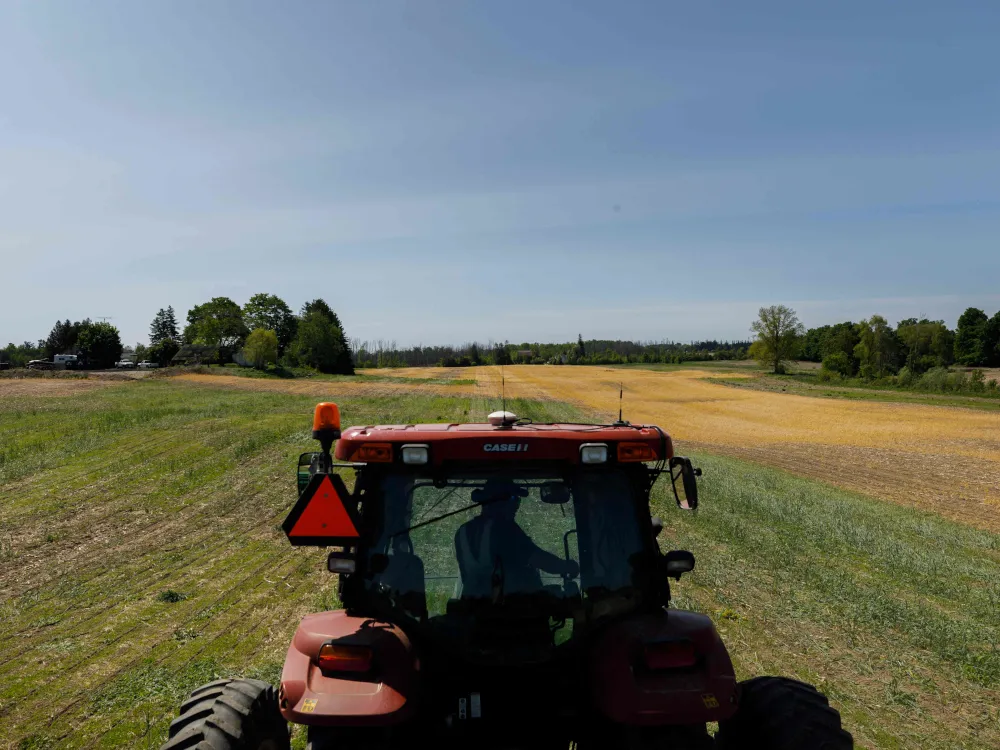Canada’s small family farmers do backbreaking work, day in and day out, from sunup to sundown, providing Canadians with the necessities of life. Yet despite how hard they work, and despite how vital their work is, they often don’t make very much in return.
They plant, grow and harvest many of the fruits and vegetables we eat. And they often struggle to eke out a living based solely on the income they generate from their farm businesses. It’s not fair or right — and it’s a problem that’s been ignored by Canadian policymakers for far too long.
I operate an organic restaurant and marketplace, and I’m constantly speaking and meeting family farmers from all over southern Ontario. Many of them are having a rough go of it. Family farmers should earn at least as much as a tradesperson or a teacher. The job they do — putting food on our tables — is just as important and their labour should be compensated accordingly.
Over the past generation, Canada has lost one-third of its farms and, even more worrisome, two-thirds of its young farmers, according to a research article published by the Canadian Association for Food Studies.
Fewer young people are picking up a pitchfork and embracing farming as a career. Farmers under the age of 35 are packing it in and looking for work in other occupations at twice the rate of the general farm population. The authors of the research article conclude that “Canada faces a crisis of generational renewal on its farms.”
It’s hard to blame Canadians for not wanting to farm anymore. It’s becoming increasingly difficult for small family farms to compete against large industrial farm operations and transnational agribusinesses.
Canada’s 2021 Census of Agriculture shows that farm income for most smaller family farms is barely paying the bills. Many family farmers have to rely on jobs off the farm, as well as government subsidies, in order to get by each year.
Our small family farmers need a break. We should eliminate all taxes — including income and property taxes — for any family farm that has fewer than 120 hectares. However, in order to get the tax breaks, it should be mandated that 50 per cent of farm operations would have to be completely organic.
Family farms are ideally suited for organic farming because of their smaller acreage and the fact that they tend to be more bio-diverse than large farms — i.e., they grow multiple crops. Going organic will also give these struggling farms a competitive edge at a time of increased demand for such products.
Under this proposal, farmers will know upfront before they even put a plow in the soil each spring that all the revenue they earn after their expenses will be tax-free. It’s a powerful incentive to keep our small family farmers on the land doing what they love to do, while giving them a more level playing field with the bigger and better-financed industrial farms.
Just as importantly, this sort of tax incentive could go a long way to helping children stick with the business of family farming once they see the potential to earn a good living.
Offering this tax incentive would accelerate the shift to organic farming that has been slowly building over the past several decades. Much like the transition to electric transportation, the conversion to organic farming is inevitable. Canada should be leading the way globally when it comes to organic farming and building a reputation for producing some of the cleanest, healthiest food on the planet.
We should maintain this family farm tax incentive for a period of 10 years, after which it should be re-evaluated. I believe this type of tax incentive is better, simpler and less bureaucratic than going the traditional route of government subsidies and support payments. And eventually, we may even want to look to extend the tax incentive to larger industrial farms, but only after family farms have had a chance to regain their competitive footing.
Having a strong and stable network of thriving family farms across our country is vital to ensuring Canada’s food security. A country that can feed its people will always be safe and stable, no matter how bad the economy gets.
Family farms have been the backbone of our agricultural sector going all the way back to Confederation. If we want to ensure a healthy and prosperous future, we need to keep them that way.

